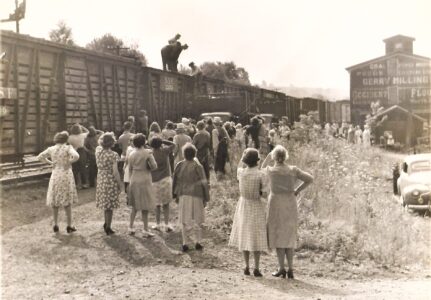A Lesson About Poaching

Night Killers, a lesson about poaching. Photo courtesy of Steve Sorensen
What’s the difference between a poacher and a hunter? The question isn’t the lead-in to a punchline. And the answer is not the simple difference between breaking the law and not breaking the law. It’s more than that. Hunters know conservation laws so they can keep them. Poachers have the intent to break them.
A hunter is like a bank customer. He goes in, does what he needs to do, and leaves. If the hunter legally tags a deer and removes it from the woods, or a bank customer carries away money from a withdrawal or a receipt for a deposit, it’s all legal. A bank robber, if he achieves his purpose in entering the bank, carries money away. It’s not his money. He is a thief. It doesn’t matter if he’s a customer of that bank, he is still a thief. And so is the poacher.
That distinction is clear in a new book called “Night Killers — Blood Lusting Poachers” by retired Pennsylvania game warden Timothy Flanigan. Flanigan was committed to catching game thieves, and he was especially effective.
If you were riding along on night patrol with Flanigan, or another warden, you’d be amazed at the poaching that happens, and the people who do it. Like most criminals, poachers are not the best people society has to offer.
In chapter after chapter, poachers are armed, highly uncooperative and a serious threat to law enforcement. Many in the southcentral Pennsylvania territory where Flanigan spent much of his career, came over from Maryland to do their dirty work. Poachers often use state lines to their advantage, hoping to return home without the law finding them.
But Flanigan did find them. Even when his use of a state vehicle was limited and he had to patrol on his motorcycle. Even when poachers were thought of as local heroes. Even when the lawbreakers included a young woman and her newborn baby. Yes, sad but true.
“Night Killers” isn’t about killing deer or bears illegally, nor is it about innocent societal misfits. It’s about hardened, anti-social menaces that would be willing to kill anyone who gets in their way, even informants who risk their lives to be on the right side of the law. Flanigan’s first-person accounts of arresting and trying vicious poachers will drive you to appreciate the work of the game warden. When done well, is dangerous, and not for the faint of heart.
No one knows the reasons for all pathological behaviors, but rural drug addiction, alcoholism, and antisocial personality disorder are often factors in the poaching incidents common in Flanigan’s 30-year career. Few hunters would want to be associated with the types.
Flanigan’s book is a sad picture of desperate people, people who don’t have to kill deer illegally because venison is readily available to people who need it. Flanigan even helped some of his arrestees to get venison. To one needy poacher-turned-informant he offered a deer. The guy said, “You bring me a deer. I’ll suck the ***** blood out of it.” When Flanigan brought him a deer, “the freshly killed buck sent him into a fit of excitement…. He ran to the dead buck, stabbed it in the neck, dropped to his knees, and began sucking the blood from its neck.”
To any poachers who may read this: You might laugh, but is that the kind of person you want to influence you? You might fool some people into thinking you’re a hunter, but you are a pretender, a low-life and a cheater.
To non-hunters: Please understand that poachers are not hunters. They are criminals hiding behind a hunting license. They are in a class by themselves, a criminal class apart from hunters.
To hunters: Whenever you can, make the distinction between hunters and poachers clear, and stand strong for the enforcement of conservation laws.
To everyone: Understand the risks game wardens take to enforce conservation laws in the dead of night when the people they seek are armed and dangerous and trying to hide what they do. For insight into what poachers are really like, grab a copy of Timothy Flanigan’s “Night Killers–Blood Lusting Poachers” from Amazon.
ııı
When “The Everyday Hunter” isn’t hunting, he’s thinking about hunting, talking about hunting, dreaming about hunting, writing about hunting, or wishing he were hunting. If you want to tell Steve exactly where your favorite hunting spot is, contact him through his website, www.EverydayHunter.com. He writes for top outdoor magazines, and won the 2015, 2018 and 2023 national “Pinnacle Award” for outdoor writing.






